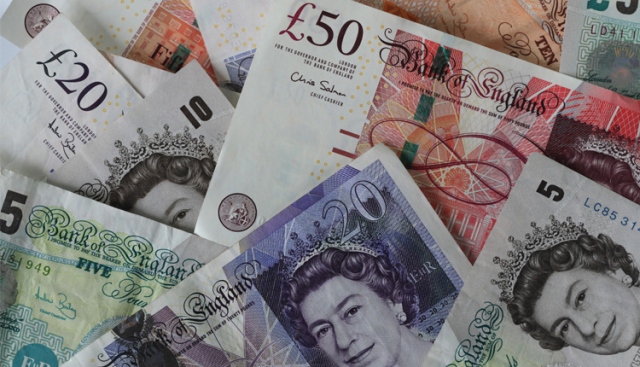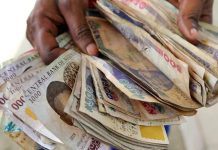Sterling’s rally lost some of its momentum on Tuesday after Prime Minister Theresa May offered lawmakers the chance to vote on delaying Brexit, a move investors said would fuel uncertainty in the weeks before Britain is scheduled to exit the EU.
May has opened up the possibility of taking a no-deal Brexit – the worst case scenario for sterling – off the table and that has sent the pound surging in recent sessions. It hit a 21-month high against the euro before May spoke and surged to four-month peaks versus the dollar.
Speaking to parliament, May said lawmakers could vote on March 14 on a motion requesting a “short, limited extension” Brexit delay if they rejected her Brexit deal on March 12.
“The bit about the “short delay” is what is weighing on markets but then some of it is also profit-taking after the rally we have seen in the pound since the last few days,” said a trader at a European bank in London.
Sterling had soared past $1.32 earlier on Tuesday, hitting its highest level since October following media reports that May would rule out a no-deal Brexit.
But May’s offer to parliament raises hopes Britain can avoid leaving the EU without a transition period in place to minimise economic disruption. It comes after opposition leader Jeremy Corbyn said on Monday his Labour Party would back a second Brexit referendum.
That had all helped push the pound to its highest level against the euro since May 2017. It rallied as much as 1 percent to 85.88 pence.
After May spoke to parliament sterling edged down from the day’s high against the euro and dollar. Against the greenback it fell below $1.32 from $1.3235, though still up 0.7 percent on the day. Versus the euro, it eased to 86.15 pence.
“While a delay … doesn’t solve anything itself, markets are taking solace in the fact that such a move would delay a ‘cliff-edge’ no-deal scenario,” said Michael Brown, an analyst at FX payment provider Caxton.
Parliament will vote on Brexit amendments on Wednesday and could seek to exert further control over the process.
Some analysts say a short delay on Brexit negotiations is priced in, however, and further gains for the pound will be difficult.
“We’ve had a tick up in the pound but the market has front-run these developments before, only to be disappointed,” said Kallum Pickering, UK economist at Berenberg.
The optimism in spot markets has yet to ripple over to the derivative markets, with one-month implied volatility gauges on the pound, a market indicator for future expected swings, edging lower but within striking distance of a six-week high.
One-week implied volatility remains elevated due to the uncertainty over the Brexit amendment votes on Wednesday .
Risk reversals painted a slightly bullish picture with one-month gauges creeping higher in overnight trading.
A large buildup of options between $1.34 to $1.35 levels indicate that investors reckon the rally could go a bit higher but may not last beyond those levels.
















